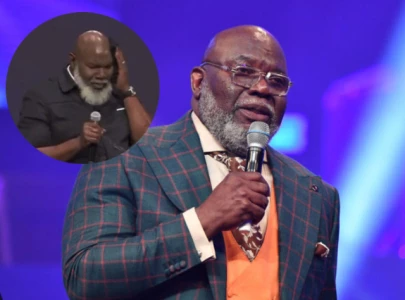
From the inception of the concept of ‘honour’ as an abstract idea implying respectability and worthiness, along with social standing and reputation of a person or a group, to restricting its meaning to chastity and fidelity especially that of a woman, this process of transformation has victimised many. No example is better than that of Mukhtaran Mai’s to illustrate the severity of the whole situation.
Fifteen years on, the situation is the same. The honour of two more innocent girls was assaulted to venerate the pride that resides in the existence of their culprits. A 16-year-old girl was subjected to rape in retribution by the brother of a 13-year-old neighbour who was raped by the former’s brother. The panchayat (village council) had hence, ordered ‘revenge rape’, rejuvenating the need to question the preposterous tolerance that is shown towards the functioning of these jirgas in presence of the formal legal system of Pakistan.
These traditions, like many laws of this country, are in use to gratify personal vengeance as reflected in the murders of Henna Shahnawaz and Mashal Khan. Such instances act as barometers to gauge the level of frustration and lawlessness that exists in people and, therefore, are becoming increasingly worrisome.
“If there were any justice in the panchayat, they should have shot the rapist. Why punish an innocent girl instead?” is a question asked by Mukhtaran Mai that was left unanswered when five of her six convicts were acquitted on ‘insufficient evidence’ and remains open to debate to date.
Ordering rape to avenge rape is as absurd as uttering profanities against one religion as an answer to blasphemy committed by someone else. The judgment given by the panchayat has raised questions on this system’s legitimacy and existence in the future and has also helped in understanding the emerging trend of mob justice, for both have been witnessed making impulsive, baseless and, therefore, irrational decisions.
We, as a nation, have an interesting history of blaming the West and its agents implanted in our country for all the defamation caused since the very beginning. Mukhtaran Mai was accused of creating hype out of an ‘ordinary’ situation to get attention of the Western media. Her name was also put on the Exit Control List by Pervez Musharraf as he did not “want to project a bad image of Pakistan.”
Here is the most fascinating fact of today. People admit that vilification has occurred, but the dispute exists over what has caused it this time: a tribe court allowing revenge rape in Muzaffarabad near Multan, or Sharmeen Obaid-Chinoy’s documentary, A Girl in the River: The Price of Forgiveness, earning three nominations at the Emmy’s.
Why has showing mirror become more heinous a crime than the crime itself? Do we expect the whole world to be as incognisant and foolish as us that they would need films to become aware of what is happening in Pakistan?
“We hope that our work will spark difficult conversations that eventually lead to a change in mindsets. We have a long way to go,” claims Sharmeen. The distance covered on this path seems to be nothing in front of what is yet to cover as the road is full of marshes that are being incessantly watered by our panchayats. Yes, evolution takes time, but the time taken should not be too lengthy that it consumes many lives and several generations.
Published in The Express Tribune, July 30th, 2017.
Like Opinion & Editorial on Facebook, follow @ETOpEd on Twitter to receive all updates on all our daily pieces.

1723278472-0/BeFunky-collage-(4)1723278472-0-165x106.webp)


1719564405-0/BeFunky-collage-(19)1719564405-0-165x106.webp)







COMMENTS
Comments are moderated and generally will be posted if they are on-topic and not abusive.
For more information, please see our Comments FAQ